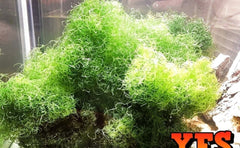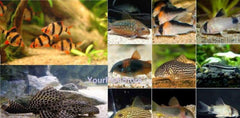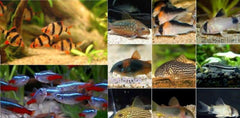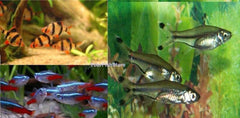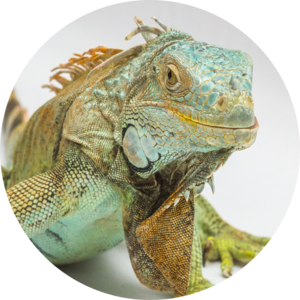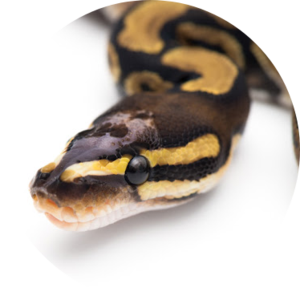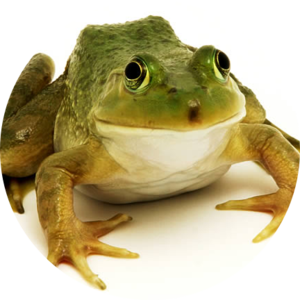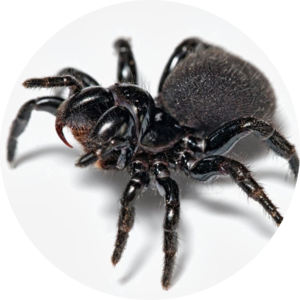X8 Albino Tiger Oscar Sm/Med 1" - 2" Each - Freshwater Package

X8 Albino Tiger Oscar Sm/Med 1" - 2" Each - Freshwater Package
Minimum Tank Size: 80 gallons
Care Level: Moderate
Temperament: Aggressive
Water Conditions: 75-82° F, KH 8-15, pH 7.0-8.0
Max. Size: 7"
The Oscar is a South American cichlid also known as the Velvet Cichlid, Peacock Cichlid, or Walnut Cichlid. unfortunately, the common name "Peacock Cichlid" can be confusing since the term "Peacock" is also often used in the names of many Aulonocara species from Lake Malawi in the Rift Valley in Eastern Africa, and several species of the Cichla genus from South America are also called "Peacock Cichlids." In the early 1800's the Oscar was given the Latin name Lobotes ocellatus, but this has been updated to Astronotus ocellatus, a hopefully more accurate name.
Oscars are fairly large fish, typically reaching lengths between twelve and sixteen inches (thirty to forty centimeters). These fish generally live for eight to twelve years, depending on the quality of care given.
Oscar Equipment & Maintenance:
To keep your Oscar healthy in your home aquarium, remember to provide them with plenty of clean, warm water. Your Oscar's temperature should be about 77° Fahrenheit (25° Celsius), and ideally should remain between 74° and 81° F (23.5° and 27° C), so you need an aquarium heater and a thermometer. Keeping your Oscar too warm for long periods of time will result in Oxygen deprivation, which can cause nerve damage, heart damage, and can seriously hamper the immune system. Keeping them too cool or exposing them to sudden chill can also hamper their immune system. An impaired immune system makes them more susceptible to many diseases, from easily treatable Ick to more difficult diseases such as hole-in-the-head.
Your Oscar aquarium should provide at least 30 gallons of space (about 114 liters) per Oscar, plus any space needed for any other fish. A minimum fish tank size of 40 gallons (about 152 liters) is recommended if you are keeping an Oscar.
Oscars are very messy fish, so fish tank maintenance is paramount. Perform your weekly 10-15% water changes, so that your Oscar always has clean water and the waste that is not processed by the aquarium filter is removed. Your Oscar needs good filtration to keep the water from becoming toxic, and you need to keep the filter(s) well maintained. When selecting a filter, remember to make sure that the filter provides excess filtration for a fish tank with the large capacity that your Oscar requires. Many people use multiple smaller filters to maintain a large aquarium like this. Using several smaller filters allows you to stagger your filter maintenance so that you are not changing all of your filter media at once and risking cycling your fish tank again. Remember, it is very important that your filters provide filtration in excess of your total aquarium volume.
Oscar Food & Care:
Remember that your Oscar is primarily carnivorous (eats meat), so provide him with a high quality, high protein diet. Many high quality processed fish foods are available on the market today, and most frozen fish foods are also appropriate for feeding your Oscar.
In the wild, most Oscars eat primarily small fish, aquatic invertebrates, insects, and insect larvae, only opportunistically scavenging on an old carcass, nipping at the fins or scales of larger fish, or consuming plant matter. You are best off to try to duplicate this diet in the aquarium environment. Provide a wide variety of processed, frozen, and freeze dried foods.
Your Oscars should be able to consume all the food you offer within two minutes of feeding. If there is food in the fish tank after this time has elapsed, this contributes to poor water quality and make your Oscars more susceptible to disease.
Though Oscars will take live foods, feeding live goldfish is always a bad idea. Feeder goldfish are not a very nutritious food, and they are a good way to spread disease to your beloved Oscars.
You should only need to feed your Oscar once a day. If you feed more than once a day you increase the waste your fish are producing and also increase the risk of over feeding, so it becomes more important that you are performing your weekly 10-15% water changes and all necessary filter maintenance.
Providing a proper diet increases your Oscar's life expectancy and bolsters their immune system.
Oscars are less aware than most fish that they are prey animals. However, in order to feel comfortable, they need to have lots of hiding places. Oscars like to rearrange their territories, so, unless you don't mind the Oscar moving everything around on you, stick with large, heavy pieces that will be harder for the Oscar to get a hold of and move. Remember, you should avoid using sharp or rough decorations that your fish may get hurt on, in case your fish dart into them when startled. Like most other fish, they are more comfortable and will come out more and be more active if you can provide them with 50-75% cover - this means you should make half to three fourths of your fish tank space hiding places. Providing sufficient cover reduces stress and therefore improves your Oscar's immune system, reducing chance of disease.
Oscars do best if kept alone. However, you can select as tank mates other large South or Central American Cichlids, though it is imperative that you select ones that are neither too aggressive nor too passive, as the aggressive ones will beat up your Oscar and the passive ones will get beaten up... Some of the medium sized Pacu can also make good companions for an Oscar. If you do want to keep your Oscar with other fish, the fish should either be raised together or should be moved into a new fish tank together so that none of them have an established territory.
Remember, Oscars are beautiful living creatures. It is the responsibility of the pet owner to care for their pet and provide a healthy environment. So give your Oscar space, clean, warm water, plenty of hiding places, and high-quality, highly varied foods and he should be a good companion for a long time.
QUESTIONS & ANSWERS
Have a Question?
Be the first to ask a question about this.



